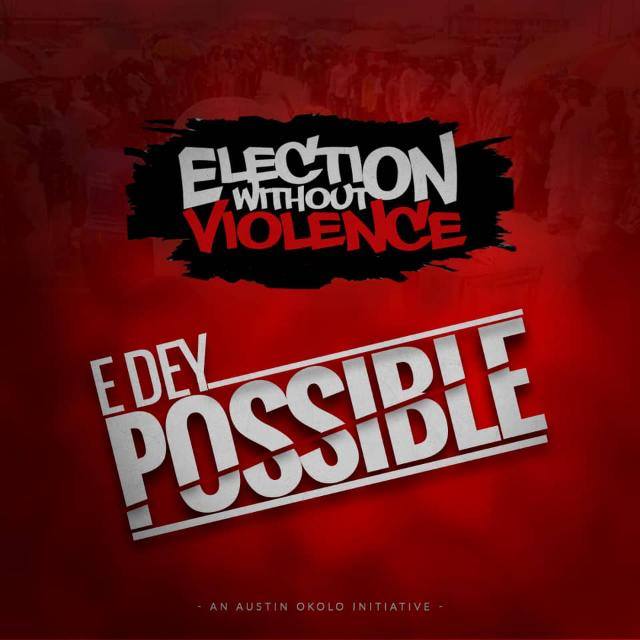Tina Amanda
Election Violence and conflict have been attributed to the poor democratic culture of politicians and the failure of electoral and governance institutions to enforce their constitutional mandate.
Head of Free Expression and Pluralism, Institute for Media and Society (IMS) Sunday Dada, disclosed this during a stakeholders virtual meeting organized by Transformation Monitoring Group (TMG) South-South, with the theme, “Peaceful and Non-Violent 2023 Election: Role of Stakeholders.”
In his lecture titled: Ensuring Peaceful Non-Violence General Election 2023, Roles of Political Actors and Electorates, Dada blamed politicians for relying more on violence and voter inducement to win elections than strong party ideology and clear actionable manifestoes that address the developmental challenges of the people.
He emphasized that the electorates and institutional stakeholders such as INEC, judiciary, and security agencies are part of the conflict drivers in the electoral process in the country.
“Most politicians are more robust than the political parties and control party structures. They impose their will on the prevailing party and hijack party nomination tickets for political stooges who are not subjected to transparent and competitive party primaries; consequently, opportunities which should have deepened the internal and external democratic culture of the parties and the region at large are lost.
“Other challenges include poverty which makes citizens susceptible to voter inducement and manipulation, etc. Those who act as leading actors in election violence in the region are youths, politicians, and security agencies. Election violence in the country involves maiming, arson, election-day killing, assassination and vandalization.
“Citizens’ political ideology is built on ‘dependent leadership’, which gives the false impression that people in authority are responsible for leadership.
“This ideology is strengthened by many factors, such as the lack of adequate political education, citizens’ general apathy to non-oil related enterprise, and the absence of strategic citizens-led political movements.
“For instance; in the Niger Delta Region, key informant interviews (kii) conducted with some youths in the region revealed that the ambition of many youths in communities is to become oil barons; Surprisingly, many of such youths readily point to militanpreneurs’ within Local Government Areas or states as role
models.
“The region’s rugged terrain, which is 67% riverine, makes it challenging for INEC to effectively deliver on its mandate of conducting free and fair elections in the state without logistics hitches. Several stakeholders believe that election results are compromised on the waterways and accused INEC of doing little or nothing to mitigate such occurrences.
“On-field assignments embarked upon recently also showed that there is a lack of strategic citizens mobilization to own and participate fully in the electoral process. The general verdict is that citizens do not believe INEC can conduct free and fair regional elections”.
On his part, Election and Development Specialist, Centre for Democracy and Development (CDD) Omoruyi Austin Aigbe, who spoke on the topic: Ensuring Peaceful Non-Violence General Election 2023, Roles of Civil Society Organization (CSOs), said Election violence sometimes arises from CSO’s that plays the role of observer’s during the election.
Aigbe explained that CSOs are to remain as observers by ensuring stipulated guidelines are followed and not to interfere with the election process, noting that most observers are overzealous and go beyond the scope of their engagement, which can also generate conflict.




